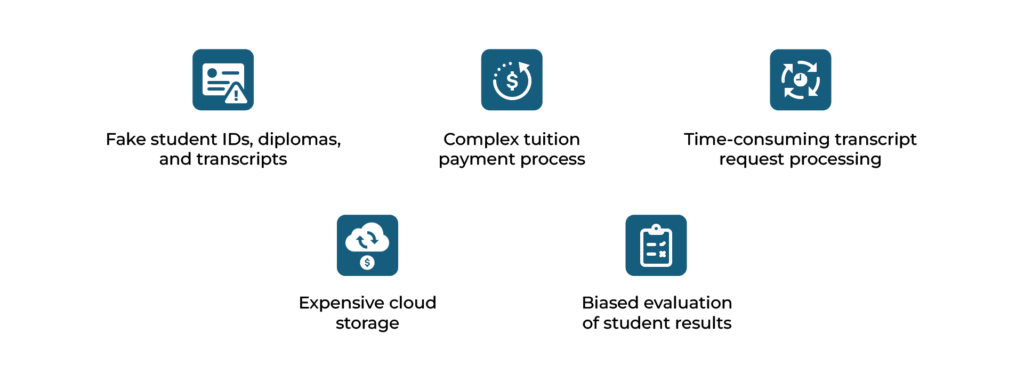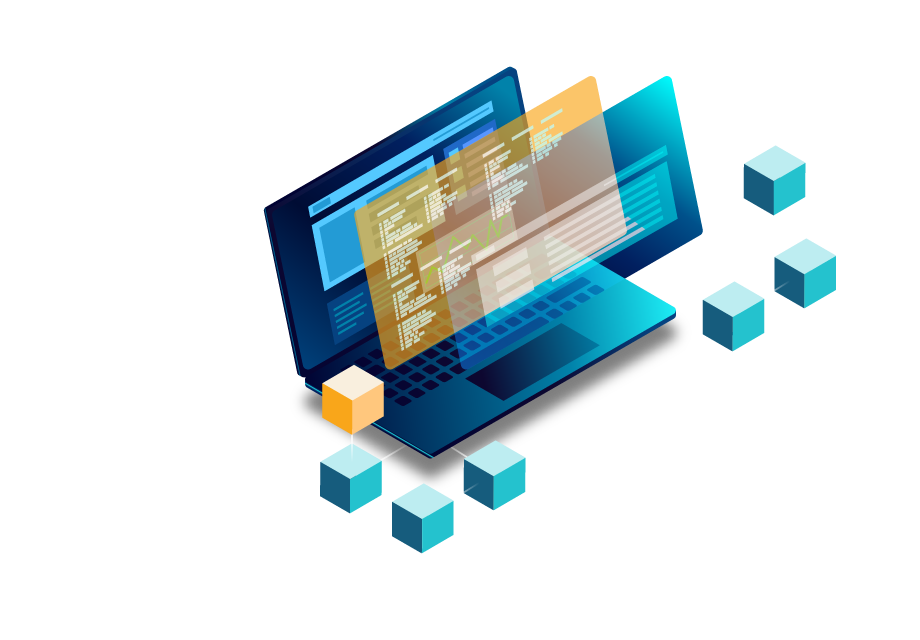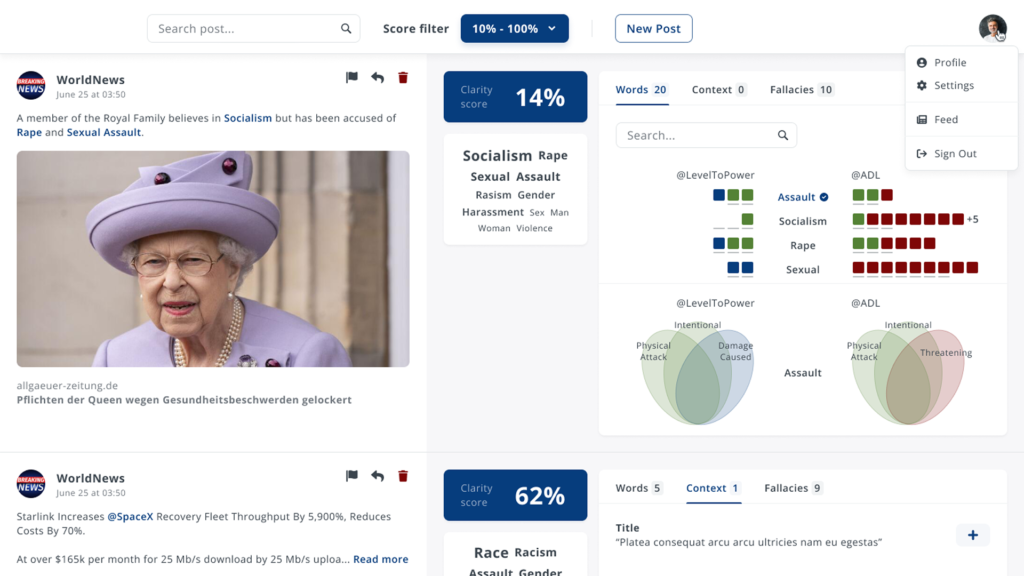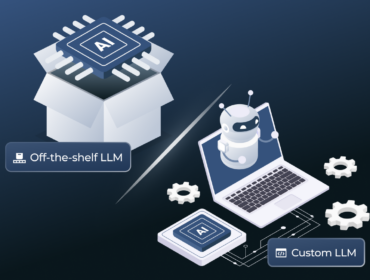The COVID-19 pandemic has disclosed many industries’ weak spots, and education is no exception.
Alongside students’ struggles (unfinished learning and the financial aftermath it entails), the industry has also faced the administrative burden of increased student ID fraud, phishing, and lack of technical base to run classes online and provide access to digital materials.
Paired with old dilemmas like biased evaluation, too much paperwork, expensive resources, and called-off exams, many graduates are changing their minds about whether they should apply to college at all. And for the education businesses, it’s the beginning of disaster. Is there a solution to these challenges?
We at Unicsoft believe it could be a wider adoption of blockchain technologies. Let’s talk about how the application of blockchain in education can be of service and what problems it can help resolve.
Most pressing education-related challenges

Fake student IDs and diplomas, manual verification of student transcripts, and complex tuition fee processing — these are just a few problems the academic communities are struggling with. Below we’ll zero in on each one and explain why they should be resolved as soon as possible.
Fake student IDs, diplomas, and transcripts
It’s mind-boggling that in 2022 student IDs, diplomas, and transcripts are still being mailed in paper form. It leads not only to long waiting times but to other serious issues.
First, it opens the possibility of documents being lost, stolen, or delivered too late. Second, it becomes easy to obtain a valid sample and fake it. Third, the transcripts have sensitive identity information that, if stolen, is incredibly tough to restore. Finally, fraudsters can use student IDs to receive discounted services and goods from companies offering student fees.
This mess causes reputational damage to educational institutions, distrust in education, and an uptick in paperwork forgery cases.
Complex tuition payment process
The tuition payment process usually involves many parties: students, their parents, grantors, banks, scholarship organizations, etc. Even within one college, it may take a few departments to finalize the payment, especially if a grant or scholarship is involved.
Colleges also have tuition payment deadlines to secure student enrolment. A complex payment process causes payment delays and endangers one’s right to enroll in selected courses at a specific college.
Time-consuming transcript request processing
Getting transcripts from colleges is costly and lengthy. The worst part? It always involves an intermediary, which makes the process even longer. Plus, they require manual verification to provide the student with accurate degrees and marks. How does it look for the requesting side?
Suppose students transfer or apply to universities and submit their paperwork for scholarships, programs, or potential employers. In that case, they can’t know for sure when they will get the requested transcripts as their issue depends on the college administrator and the mail service.
The result?
Students can’t get their transcripts to meet the application deadlines on time. On top of that, transcript requests often come from alumni, which adds to the school administration’s work.
Expensive cloud storage
The tuition cost usually reflects various expenses on materials, software, and tools the school provides to its students throughout their study. Cloud storage is one of them.
For example, online storage providers, like Amazon or Dropbox, charge a high fee for their plans, which is usually passed on to students through higher tuition rates. And since storing every record, book, and administrative file on hardware isn’t an option in a fast-paced digitalized environment, schools have to include that in tuition cost.
Biased evaluation of student results
We remember all too well that sometimes teachers aren’t objective in their evaluation. It causes problems for students as they may receive lower grades for their work, which can affect their general academic performance indicators. It also negatively impacts the college, as students can publish negative reviews, file lawsuits, or transfer to another college (taking their money with them).
In each case, reputation – collective and individual – will suffer the most. As a result, schools may have fewer applicants (which entails poorer financing), and students might not get well-deserved attention from employees or grantees.
These problems are too pressing to ignore if the education sector still wants to attract students, generate revenue, and ensure they provide decent post-graduation services. Let’s see how the adoption of blockchain in education can help.
How can blockchain solve the education challenges?

The application of blockchain in education can come in various forms — from providing cost-effective distributed online storage to on-demand document issuing to streamlining the payment process. Let’s see what benefits blockchain can bring to education and analyze a few use cases.
Digital diplomas, student IDs, and transcripts
The blockchain can be used to safely keep and issue various student documents, such as:
- Student records
- Transcripts
- IDs
- Diplomas and certifications
Blockchain prevents unauthorized users from altering them throughout the period of study and beyond. As a result, the cases of document forgery drop, fraudsters cannot use forged IDs to get discounts, employers better assess applicants’ skills and qualifications, and schools maintain their good reputation.
Real-life use case: Learning Machine, an MIT Media Lab-backed open-source project, offers degree and paperwork verification. It is powered by BlockCerts, an open-source standard for blockchain credential securing. With Learning Machine, the institutions like MIT or another university can cryptographically sign the document, and another party (usually an employee or project supervisor) can use BlockCerts to verify the document’s validity.
Smart contracts for streamlining payments
The use of smart contracts secures money transfers and lowers administrative expenditures connected with the process. Smart contracts come into effect only after certain conditions are met, so there’s no need for individual intervention. Plenty of internal processes can be automated.
Real-life use case: Parents in China started to use smart contracts to pay for extra-curriculum classes their kids attend. If they don’t show up to some classes, the money moves back to the parent’s account automatically, so they don’t have to file a claim.
Fast e-transcripts issuing
Since blockchain is open to everyone, the students themselves can get the e-transcripts and send them to the employers for further verification. It eliminates the need for an intermediary (usually a school administrator).
As a result, it saves students’ time and decreases administrative workload and cost. Most importantly, it provides access to the records whenever needed, so students can plan their time and application procedure.
Real-life use case: Sony Global Education and IBM offer solutions of this kind. Using them, the students can choose who to share their educational data with, and employers or program managers can easily verify them within seconds.
Access to digital resources at a lower cost
Another application of blockchain in education is providing decentralized storage at a competitive price. The schools can share their digital resources over a public network with their students at a lower cost, which can bring the tuition fee down. This opens up other benefits.
First, resources become readily available, and students can access materials 24/7 without spending extra money. Second, schools using these technologies become more attractive to potential applicants because of lower tuition fees.
Real-life use case: Sia and FileCoin provide decentralized storage that educational institutions can use to securely distribute resources and grant access to students. It lowers the risk of a single point of failure, which is common among academic communities when the server and data storage issue prevents students from accessing the needed materials.
Smart contracts for courses and assignments
Smart contracts are usually used in business for securing deals, but there is also a way to apply blockchain in education. Professors can develop their courses on blockchain and evaluate the students’ results fairly. How so? A professor can set the requirements the students must meet to get a certain grade. After these requirements are met, students get the corresponding marks.
Plus, these contracts can contain the course limitations and requirements that are publicly available and accepted. So, if a student suspects that their grades have been lowered, they can address the issue in public.
Real-life use case: ODEM, a centralized marketplace for educational products, uses smart contracts to provide transparent information about professors’ tasks and students’ work. It promotes transparency in education, an essential condition of a fair evaluation.
These cases prove that wider adoption of blockchain in education can tackle the most pressing issues students and schools are facing. We at Unicsoft believe that it’s only a start. Here are the solutions we can happily offer to educational businesses.

Unicsoft experience in blockchain for education
With so many applications of blockchain in education on the market, Unicsoft clients proved there’s still room for further innovation. Our team has worked on various education-related projects. Yet, there are two projects on knowledge validation and the EdTech platform in the metaverse we’d love to share with you.
Blockchain-based platform for knowledge validation

Schools must provide their students with relevant and up-to-date information, but with so much fake data, it’s hard to know what sources to use and facts to operate. Our clients commissioned us to develop a platform that would let them verify and validate knowledge without the risk of someone altering it.
This platform functions on Proof-of-Knowledge, a novel blockchain protocol. The blocks are created by knowledge producers (for example, authors of books, monographs, dissertations, etc.). These blocks store candidate’s knowledge, and miners compete to verify that knowledge as valid.
This approach prevents media, corporate, or even government agencies from altering the facts and using them for propaganda or blackmailing. In addition, this accumulated knowledge is made publicly available.
If you want to know more about this project, please feel free to contact our team, and we’ll share with you how we made it happen.
Smart contracts for EdTech platform in metaverse
Another case of blockchain in education that Unicsoft has worked on is the creation of an educational platform in the metaverse (3D virtual network focused on social connection).
Unicsoft is currently working on adding an educational component that would allow people to build their own schools, teach, collaborate, socialize and have fun with millions of students worldwide. This component aims to provide specialist training following a user-friendly gamified approach.
The platform offers various user roles:
- Guest
- Member
- Investor
- Teacher
- Student
- Company owner
- Admin
The participants can invest and earn capital by taking courses and participating in specific events. We created several token earn strategies:
- Teach to earn
- Learn to earn
- Invest to earn
- Rent to earn
- Play to earn
- Stake and Voting governance token to earn
In this way, we provide different users with different options to be involved in the education process in the metaverse.
This case had many technical nuances, and we’re ready to share them with you during a free consultation you can book here.
Ready to power your educational project with Blockchain?
The application of blockchain in education opens many possibilities for making educational management and administration simpler and safer, and learning — more exciting.
Blockchain technologies can reduce document forgery, prevent unfair result evaluation, streamline payment processes, and enable students to access resources and documents on demand. And with the development of the metaverse, blockchain in the education component will ensure access to verified, unaltered information and maintain interest in learning new skills. Our Unicsoft team knows how to insert the blockchain component into your edtech and administration infrastructure. Ready to transform the way you manage administrative tasks and provide learning services? Contact us today, and let’s discuss how to improve your business!





![How Blockchain in Education Can Solve Industry’s Challenges What’s the EU Artificial Intelligence Act and How to Comply? [Webinar]](https://unicsoft.com/wp-content/uploads/2024/03/Cover_1140_v1.1-370x280.png)

